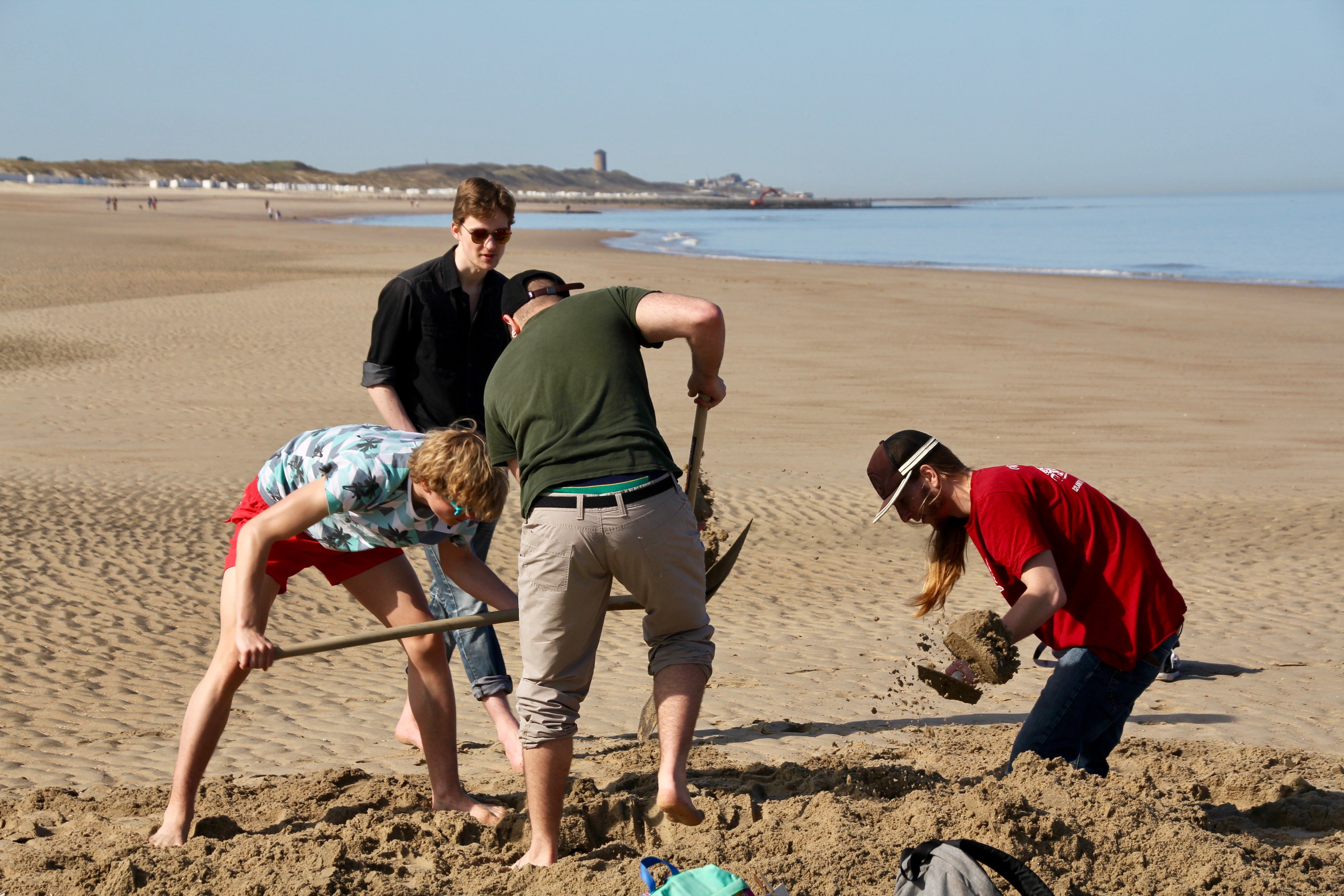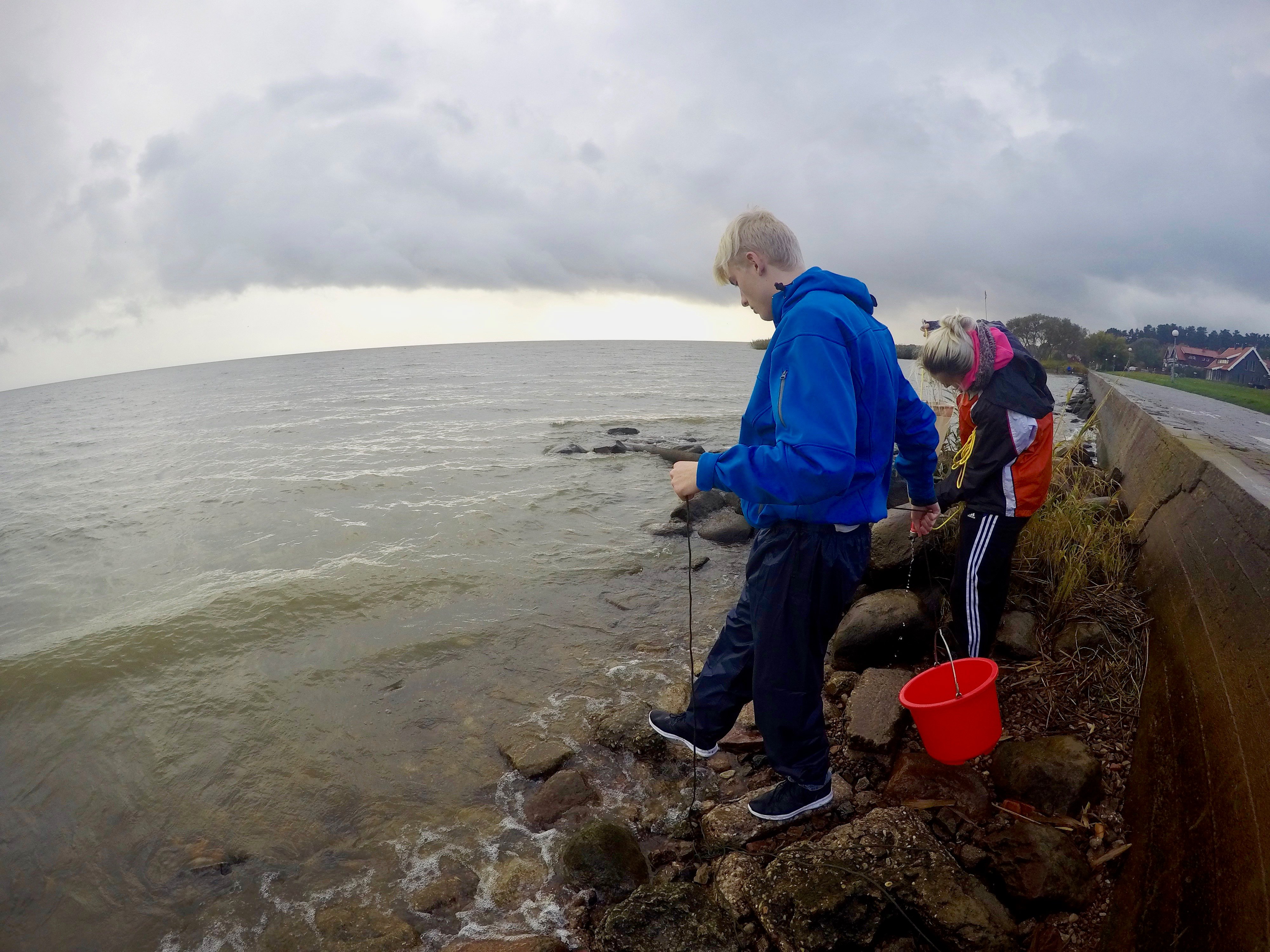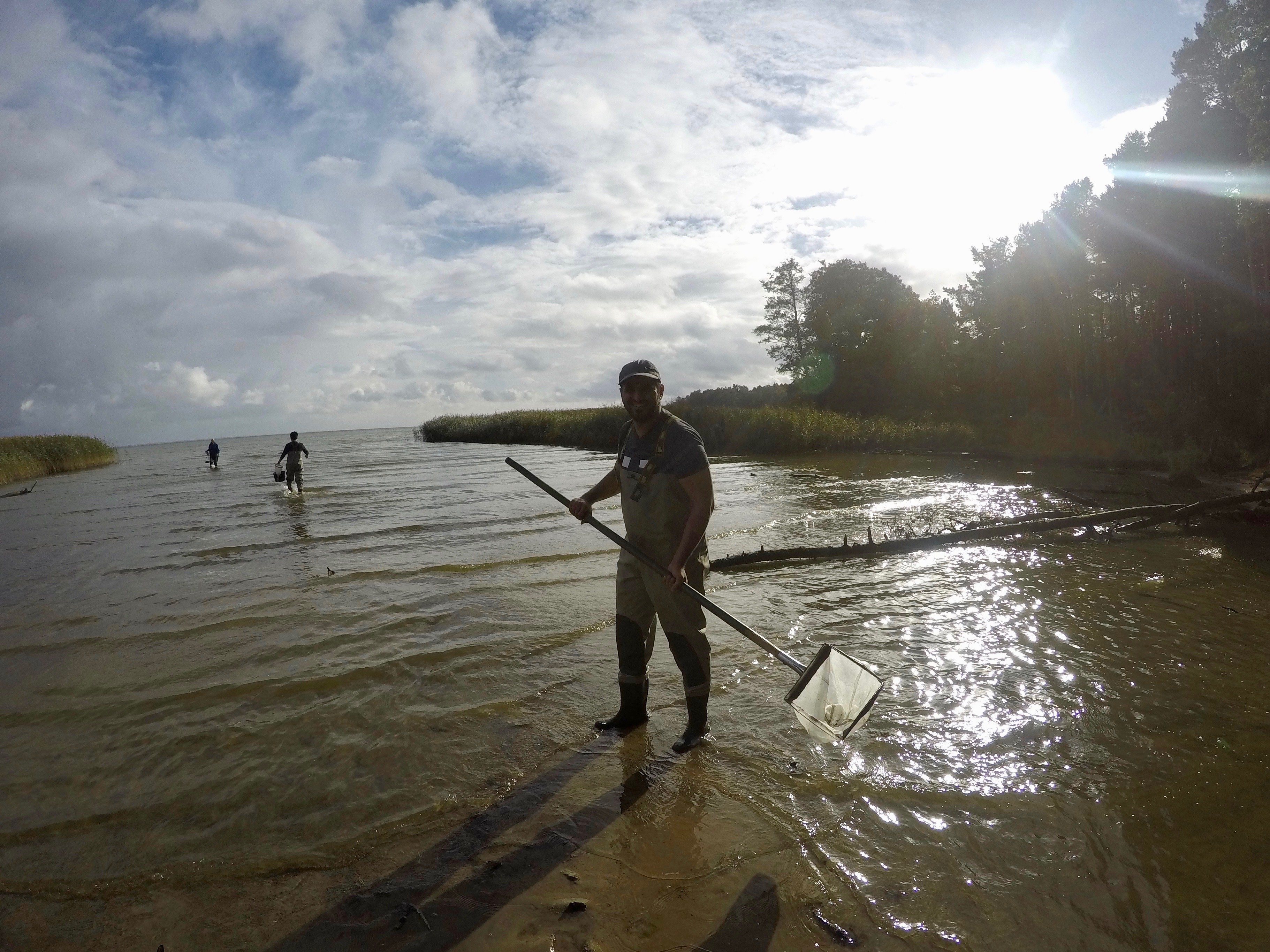Originally posted on 09/05/2018
The HZ University of Applied Sciences offers many opportunities to work in the field for both the Water Management programme and the Civil Engineering one.
If you are interested in finding out more about what you can expect from those activities keep on reading this blog :)
 Water Management students busy with geomorphological observation of the coast at Oostkapelle.
Water Management students busy with geomorphological observation of the coast at Oostkapelle.
Sampling
Some of the projects you will be working on will need some sampling in order to gather data on the area you are interested in.
It might happen that as a Water Manager you will be taking water samples to analyse them later on in the Lab, you can read more on lab analysis in my blog where I share with you my experience in Lithuania.
As a Civil Engineer you will also have some sampling activities throughout the course, to find out, for example, the soil composition of a particular site and to measure various aspects of a channel.
 Students taking samples of phytoplankton (see net behind the boy) :)
Students taking samples of phytoplankton (see net behind the boy) :)
Observation
On the field does no necessary mean that you have to make your "hands dirty", it could also be mere observation. How does your project area look like? what can you understand from the landscape? With the help of your lecturers you will learn how to "read" the typical Dutch Landscape and understand how to gather useful information by doing so.

In this picture some students are observing the bird species that populate the Walcheren Polder :)
Taking measurements
Another possible task to execute could be measuring parameters. You will learn how to use tools and various meters in order to get accurate data and you will also be taught how to interpret those data.
 Lithuania, student taking samples on the coast o the lagoon.
Lithuania, student taking samples on the coast o the lagoon.
Is it worth it?
Working in the field will give you a great idea about how to apply your theoretical knowledge gained during the lectures in a practical matter. And of course, it's also fun :)
